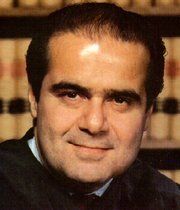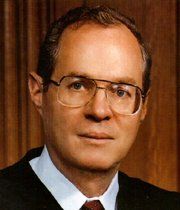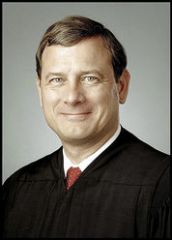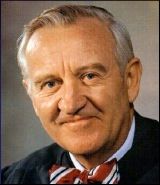![]()
![]()
![]()
Use LEFT and RIGHT arrow keys to navigate between flashcards;
Use UP and DOWN arrow keys to flip the card;
H to show hint;
A reads text to speech;
86 Cards in this Set
- Front
- Back
|
Inferior Courts:
|
the lower federal courts, those beneath the Supreme Court. There are two types of lower courts; the constitutional courts and the special courts.
|
|
|
Original Jurisdiction:
|
When a case is first heard in a court. Jurisdiction is the authority of a court to hear a case.
|
|
|
Writ of Certiorari
|
(to be made certain) it’s an order by the Court directing a lower court to send up the record in a given case for its review. Either party to a case can petition the Court to issue a writ. A “cert” is only granted in a limited number of instances-typically, only when a petition raises some important constitutional question or a serious problem in the interpretation of a statute.
|
|
|
Dissenting Opinion
|
are often written by those justices who do not agree with the Court’s majority decision.
|
|
|
Concurring Opinion
|
to add or emphasize a point that was not made in the majority opinion. The concurring opinions may bring the Supreme Court to modify its present stand in future cases.
|
|
|
Majority
|
announces the Court’s decision in a case and sets out the reasoning on which it is based. AKA Opinion of the Court.
|
|
|
Quorum
|
least number of members who must be present for a legislative body to conduct business.
|
|
|
Federalist and Anti-Federalist
|
When the Constitution was printed two groups emerged. Federalist who favored ratification, and the Anti-Federalist who opposed it
|
|
|
Connecticut Compromise
|
Congress should be composed of two houses. In the smaller Senate, the States would be represented equally. In the House, the representation of each State would be based upon its population.
|
|
|
Popular Sovereignty
|
government can exist and function only with the consent of the govern. It is the people who hold power; it is the people who are sovereign.
|
|
|
Confederation
|
Form of government in which an alliance of independent states creates a single government of very limited power; the member states have supreme authority over all matters except in those few areas in which they have expressly delegated power to the central government.
|
|
|
English Bill of Rights
|
prohibited a standing army in peacetime, except with the consent of Parliament, and required that all parliamentary elections be free. Also guaranteed the right to a fair and speedy trial, freedom from excessive bail and from cruel and unusual punishment.
|
|
|
Representative Government
|
the idea that the government should serve the will of the people. People should have a voice in deciding what government should and should not do. “Government of, by, and for the people.”
|
|
|
Political Efficacy
|
people that lack any sense of their own influence or effectiveness in politics.
|
|
|
Test 1 US Gov Mr. Livingstone
|
Test 1 US Gov Mr. Livingstone
|
|
|
Actual Nonvoters and the Reason for this Behavior
|
Nonvoters are people who just decide not to vote for many of different reasons. Such as deliberately not going to the pools, they believe it doesn’t make a difference, or they believe that no matter who is elected things will still go good.
|
|
|
Gerrymandering
|
is the practice of drawing electoral district lines in order to limit the voting strength of a particular group or party.
|
|
|
Registration
|
All states except North Dakota require that most or all voters be registered to vote. Is a procedure of voter identification, intended to prevent fraudulent voting.
|
|
|
Civil Rights Act of 1964
|
Outlaws discrimination in several areas, and especially in job-related matters. It forbids the use of any registration requirement in an unfair or discriminatory manner.
|
|
|
Political Efficacy
|
people that lack any sense of their own influence or effectiveness in politics.
|
|
|
Injunction
|
a court order that requires or forbids some specific action.
|
|
|
Literacy
|
a person’s ability to read and write. To vote you had to have at least some capacity to cast an informed ballot.
|
|
|
Voting Qualifications
|
Usually Aliens are generally denied the right to vote although it is not in the constitution that they can’t vote but state has the right to determine if they will let them or not. Most states will require a person to live within the state for some time period. The 26th amendment sets 18 as the cap on the minimum age for voting.
|
|
|
Electorate
|
the potential voting population. More than 200 million people, nearly all citizens who are at least 18 years of age, can qualify to vote.
|
|
|
Suffrage
|
the right to vote.
|
|
|
The Nature of Human Nature
|
Thomas Hobbes describes the nature of human nature by emphasizing “Our animal nature, leaving each of us to live independently of everyone else, acting only in his or her own self-interest, without regard for others. This produces what he called the "state of war," a way of life that is certain to prove "solitary, poor, nasty, brutish, and short."
|
|
|
The Social Contract Theory
|
this theory argues that the state arose out of a voluntary act of free people. It holds that the state exist only to serve the will of the people, and that they are the sole source of political power, and that they are free to give or to withhold that power as they choose. The great concepts that this theory promoted-popular sovereignty, limited government, and individual rights- were immensely important to the shaping of the American governmental system.
|
|
|
The Magna Carta
|
(the great charter) signed at Runnymede in 1215. Knowing of King John’s military campaigns and heavy taxes, the barons were seeking protection against arbitrary acts by the king. It included such fundamental rights as trial by jury and due process of law- protection against the arbitrary taking of life, liberty, and property.
|
|
|
Separation of Powers
|
The constitution distributes the powers of the national government among the congress (the legislative branch), the President (executive branch), and the courts (the judicial branch).
|
|
|
The Mayflower Compact
|
established a form of local government in which the colonists agree to abide by majority rule and to cooperate for the general good of the colony. The Compact sets the precedent for other colonies as they set up governments.
|
|
|
The Articles of Confederation
|
established “a firm league of friendship” among the States. Each State kept “its sovereignty, freedom, and independence, and every power, jurisdiction, and right. States came together “for their common defense, the security of their liberties, and their mutual and general welfare.”
|
|
|
David Souter
|
Liberal
|
|
|
Stephan Breyer
|
Moderate
|
|
|
Clarence Thomas
|
Conservative
|
|
|
Antonin Scalia
|
Conservative
|
|
|
Anthony Kennedy
|
Moderate
|
|
|
John G. Roberts Jr.
|
Cheif Justice
Conservative? |
|
|
John Paul Stevens
|
Liberal
|
|
|
Ruth Ginsburg
|
Liberal
|
|
|
Samuel A Alito
|
Conservative?
|
|
|
Amendment I
|
freedom of religion, speech, press, assemble peacfully, pettition the government
|
|
|
Amendment II
|
right to keep and bear arms
|
|
|
Amendment III
|
no housing soliders
|
|
|
Amendment IV
|
no unreasonble searches and seizures
|
|
|
Amendment V
|
right to a grand jury, no double jepordy, no witness agaist self, due process of law
|
|
|
Amendment VI
|
right to a speedy and public trial, confronted with the witnesses against him, obtaining witnesses in his favor, lawer criminal
|
|
|
Amendment VII
|
Right to an aturney in civil cases
|
|
|
Amendment VIII
|
No cruel or Unusual punishments
|
|
|
Amendment IX
|
more rights then listed here.
|
|
|
Who was the main writer of the Declaration of Independence
|
Thomeas Jefferson
|
|
|
How many terms can a president serve
|
2 or 10 years
|
|
|
Two senators from you state?
|
Barbra Boxer and Dian Finstein
|
|
|
how many representatives are there in congress
|
House: 435 Senate: 100
|
|
|
For how long do we elect each senator
|
6 years
|
|
|
For how long do we elect the representatives
|
2 years
|
|
|
How many changes or amendments are there to the constitution
|
27
|
|
|
For how long do we elect the president
|
4 years
|
|
|
Liberals
|
-Group Responsibility
-Change -Religious Tolerance -Trust Government -Woman's right to chose -Gun control to protect society -No capital punishment -Protect US intrests through diplomacy |
|
|
Conservatives
|
-Individual Accountability
-Stability -Traditional Religious values -Trust business -rights for the unborn -capital punishment -Protect US interest with the military |
|
|
Liberals
|
-Group Responsibility
-Change -Religious Tolerance -Trust Government -Woman's right to chose -Gun control to protect society -No capital punishment -Protect US intrests through diplomacy |
|
|
Conservatives
|
-Individual Accountability
-Stability -Traditional Religious values -Trust business -rights for the unborn -capital punishment -Protect US interest with the military |
|
|
Aristotle's Matrix
|
GOV= GOOD --> BAD
One= monarchy--> tyranny Few= Aristocracy--> oligarchy Many= Polity--> Democracy (mobocracy |
|
|
Aristotles matrix and our government
|
One= executive branch
Few=Legislative branch: senate 100 pep Many= legislative branch: house 435 pep |
|
|
Jobs
President- Legistlative- Judical- |
Presidental-enforces laws
Legistlative- makes lawas Judical- interpits laws |
|
|
Routes of Appeal
|
3 Tears
US district courts--> US Court of Appeals--> Spreme Court (Final resort) |
|
|
Supreme Court
|
-reviews only 4% of all requests
-term begins on 1st monday of october and ends in June |
|
|
Concurring opinion
|
means person agrees with the majority vote but for a different reason
|
|
|
Courts of Appeal
|
-no witnesses, cross examinatons, or jurors
-only excepted on basis of improper courtroom procedure or an incorrect application of the law |
|
|
Original JUrisdiction
|
If situtation is so importanat it will start in Supreme court
|
|
|
Parts of Constitution
|
Parts of Constitution
|
|
|
Article I
|
Legislative
|
|
|
Article II
|
executive
|
|
|
Article III
|
JUdicial
|
|
|
Article IV
|
Relations among states
|
|
|
Article V
|
Amending process
|
|
|
Article VI
|
National Surpremacy
|
|
|
Article VII
|
Ratification
|
|
|
David Hackett Souter
|

Who is this supreme Court Justice
|
|
|
Stephan Gerald Breyer
|

Who is this supreme Court Justice
|
|
|
Clarence Thomas
|

Who is this supreme Court Justice
|
|
|
Antonin Gregory Scalia
|

Who is this supreme Court Justice
|
|
|
Anthony Kennedy
|

Who is this supreme Court Justice
|
|
|
John G. Roberts Jr.
|

Who is this supreme Court Justice
|
|
|
John Paul Stevens
|

Who is this supreme Court Justice
|
|
|
Ruth Bader Ginsburg
|

Who is this supreme Court Justice
|
|
|
Samuel A. Alito Jr.
|

Who is this supreme court justice
|

